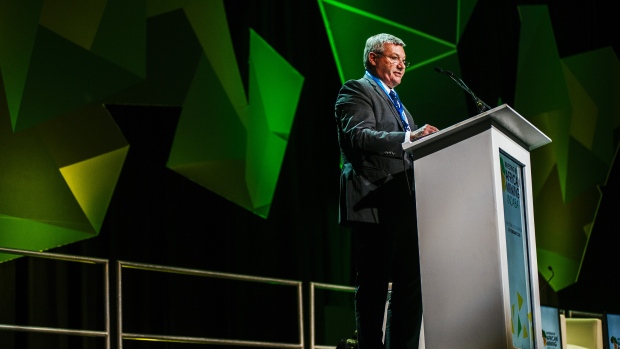May 9, 2018
Kinross plunges as two more African countries seek mining payoffs
, Bloomberg News

Kinross Gold Corp. (K.TO) is the latest miner to be hit by changing policies in Africa as governments seem increasingly willing to upend historic deals with foreign companies in their quest for more mining revenue.
Mauritania’s rejection of a key permit to expand a Kinross project, and a proposed mining code review in Ghana, dealt a double blow to the Toronto-based miner, sending its shares down the most intraday since 2014.
Ghana and Mauritania join a string of African countries -- from Tanzania to Zambia to the Democratic Republic of Congo-- that are trying to reap greater economic benefits from their natural resources.
Ghana is benefiting little from its mineral wealth and needs to review its mining code and tax policies, Vice President Mahamudu Bawumia said Tuesday at a conference in the capital, Accra. Meanwhile, Mauritania’s rejection of the permit could impact Kinross’s Phase Two expansion of its Tasiast mine, Kinross said in its first-quarter earnings statement -- and implied the country’s concerns go much further.
Its subsidiary received a letter from the Mauritanian government asking for discussions about “all of the company’s activities in Mauritania,” Kinross said, with the aim of creating greater overall economic benefits for the nation. “Kinross is currently assessing the situation, including the potential impact of the request on the Phase Two expansion.”
A Kinross spokesman couldn’t immediately be reached for comment on Wednesday.
The Canadian miner is being affected by policies outside Africa as well. U.S. sanctions against Russian billionaires sent Kinross shares tumbling last month. About 20 per cent of Kinross’ production this year will come from Russia, according to the company website.
Russia and West Africa accounted for 41 per cent of Kinross’ revenue in 2017, according to data compiled by Bloomberg.
Kinross dropped 13 per cent to $4.66 at 11:35 a.m. in Toronto, after plunging as much as 15 per cent. The shares have declined 14 per cent this year.
--With assistance from Ekow Dontoh



